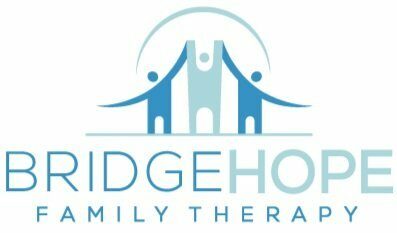Do I Have Relationship OCD?
Being in a relationship naturally involves some doubts, questions, and concerns—that’s part of being human. However, when these thoughts become intrusive, all-consuming, and accompanied by compulsive behaviors, you may be experiencing Relationship OCD (ROCD). This challenging form of Obsessive-Compulsive Disorder can transform what should be a source of joy and connection into a source of constant anxiety and doubt.
Relationship OCD is a subtype of Obsessive-Compulsive Disorder characterized by persistent, intrusive doubts about romantic relationships. These obsessive thoughts focus on questioning the relationship itself, the partner’s suitability, or the authenticity of one’s own feelings. The doubt creates intense anxiety that individuals attempt to relieve through compulsive behaviors such as seeking reassurance, comparing partners to others, or mentally reviewing relationship “evidence.”
Unlike normal relationship concerns that come and go, ROCD involves relentless, distressing preoccupation that interferes with the ability to be present and enjoy the relationship. The doubts feel urgent and catastrophic, demanding immediate resolution—yet no amount of analysis or reassurance provides lasting relief. There are two primary forms of ROCD:
Relationship-Centered ROCD: Obsessive doubts about whether the relationship is “right,” whether you truly love your partner, or whether you should stay or leave. Questions like “Is this the right person for me?” or “Do I really love them?” dominate thinking.
Partner-Focused ROCD: Obsessive preoccupation with perceived flaws in your partner. Fixating on their appearance, intelligence, personality traits, or social status, leading to questions like “Are they attractive enough?” or “What if I could do better?”
Both forms share the same underlying mechanism: an intolerance of uncertainty and the mistaken belief that doubts indicate relationship problems rather than recognizing them as OCD symptoms.
Signs and Symptoms of Relationship OCD
Understanding whether you’re experiencing normal relationship concerns or ROCD requires examining the intensity, frequency, and impact of your doubts.
Obsessive Thoughts and Doubts
Constant questioning of feelings: “Do I really love them?” “What does love even feel like?” “How do I know this is real?” These questions consume your thoughts despite being in what objectively appears to be a healthy relationship.
Catastrophic thinking about the relationship: Immediately jumping to worst-case scenarios (“If I have this doubt, we’re doomed”) or believing that any uncertainty means the relationship is fundamentally wrong.
 Comparing your partner to others: Obsessively analyzing whether your partner is as attractive, intelligent, successful, or interesting as other potential partners, exes, or idealized fantasies.
Comparing your partner to others: Obsessively analyzing whether your partner is as attractive, intelligent, successful, or interesting as other potential partners, exes, or idealized fantasies.
Analyzing physical or emotional responses: Constantly monitoring your physiological reactions (heart rate, butterflies, sexual arousal) as “proof” of love, then panicking when these fluctuate naturally.
Fixating on perceived partner flaws: Unable to stop thinking about specific features, behaviors, or characteristics of your partner, magnifying minor imperfections into relationship-ending concerns.
Ruminating about the future: Obsessively worrying whether you’ll be happy together in five, ten, or twenty years, demanding certainty about the unknowable future.
Intrusive images of being with others: Unwanted thoughts or mental images of being romantically involved with other people, which you interpret as evidence you’re with the wrong person.
Compulsive Behaviors
Reassurance seeking: Repeatedly asking your partner, friends, or family whether your relationship is good, whether you seem in love, or whether they think you’re right for each other. The reassurance provides only momentary relief before doubts return.
Mental reviewing and analysis: Spending hours mentally reviewing relationship memories, interactions, or feelings, searching for “proof” that you love your partner or that the relationship is right—or wrong.
Testing feelings: Creating artificial situations to “test” your love (e.g., imagining your partner dying to see if you feel sad enough, forcing yourself to feel physical attraction, engineering scenarios to provoke jealousy).
Comparing behaviors: Constantly comparing your relationship to others’ relationships, social media portrayals, or romantic movies, using these as metrics for whether your relationship is “good enough.”
Researching obsessively: Spending hours reading articles, forums, or social media posts about “signs of true love,” “how to know if you’re with the right person,” or “when to leave a relationship.”
Checking and monitoring: Constantly analyzing your emotional state, scrutinizing interactions with your partner for signs of problems, or monitoring your physical responses to their presence.
Confessing and oversharing: Compulsively confessing every doubt, thought, or feeling to your partner, seeking their reassurance or validation repeatedly.
Avoidance behaviors: Avoiding relationship milestones (moving in together, getting engaged, meeting family) because they trigger overwhelming anxiety; alternatively, avoiding situations where you might see attractive people who trigger comparison thoughts.
Emotional and Relational Impact
Chronic anxiety about the relationship: Feeling constantly on edge, worried, or distressed about your partnership, even when nothing is objectively wrong.
Emotional numbness: Paradoxically, the constant analysis can lead to feeling emotionally disconnected or numb, which then becomes another source of obsession (“Why don’t I feel anything?”).
Guilt and shame: Feeling terrible about having these doubts, especially when you recognize your partner is wonderful and treats you well. The guilt itself becomes another obsession.
Inability to be present: During dates, conversations, or intimate moments, your mind is consumed by doubts and analysis rather than experiencing the moment.
Relationship sabotage: The constant doubt may lead to breaking up with partners you care about, then experiencing intense regret and obsessing about whether you made a mistake.
Partner distress: Your partner may feel confused, hurt, or exhausted by constant reassurance-seeking or emotional unavailability.
Distinguishing ROCD from Genuine Relationship Problems
This distinction is critical because ROCD can lead people to end healthy relationships or, conversely, stay in genuinely unhealthy ones due to fear of making the “wrong” choice. Here are key differences:
Genuine Relationship Concerns
- Doubts arise from specific, concrete issues (e.g., incompatible life goals, unresolved conflicts, mistreatment)
- Concerns feel grounded and rational, even if emotionally difficult
- Discussing issues with your partner leads to productive conversations or resolutions
- You generally feel better after working through concerns or getting perspective
- Doubts don’t consume every moment or prevent you from functioning
- When the relationship is good, you can experience and enjoy that goodness
Relationship OCD
- Doubts are vague, existential, and resistant to resolution (“What if I don’t love them enough?”)
- Concerns feel irrational, especially given objective relationship quality
- No amount of evidence or reassurance provides lasting relief

- Discussing doubts with your partner or others provides only momentary comfort before anxiety returns
- Doubts persist regardless of relationship circumstances—even during wonderful moments
- You cannot be present or enjoy positive experiences because you’re analyzing them
Additionally, ROCD symptoms often extend beyond romantic relationships. People with ROCD frequently have obsessive doubts in other areas (friendships, career choices, purchases) or other OCD symptoms entirely, indicating a broader anxiety disorder rather than relationship-specific concerns.
The ROCD Cycle
Like all OCD subtypes, ROCD follows a predictable pattern:
Intrusive Thought: A doubt about the relationship or partner appears (e.g., “What if I don’t really love them?”)
Anxiety Spike: This thought triggers intense fear, panic, or dread about being in the wrong relationship or making a terrible mistake
Compulsion: The person engages in behaviors to reduce anxiety (e.g., analyzing feelings, comparing partners, seeking reassurance, testing feelings)
Brief Relief: Anxiety temporarily decreases, reinforcing the compulsive behavior
Return of Doubt: The intrusive thought returns, often stronger, restarting the cycle
This cycle can occur dozens or even hundreds of times daily, consuming mental energy and preventing genuine emotional connection with the partner.
Real-Life Examples of Relationship OCD
Example 1: Jessica has been with her partner for three years. He’s kind, supportive, and they share similar values. Yet she spends 4-5 hours daily obsessing over whether she “truly” loves him. She compares her feelings to how she felt with her first boyfriend, researches “signs of true love” online, and asks her friends weekly whether she seems in love. When her partner proposes, she has a panic attack—not because she doesn’t want to marry him, but because the commitment makes the uncertainty feel unbearable.
Example 2: Mark notices his girlfriend has a slightly asymmetrical smile. This observation becomes an all-consuming fixation. He stares at her face during conversations, analyzes photos, compares her to other women, and feels disgust or anxiety when looking at her—feelings that horrify him because he genuinely cares about her. He spends hours trying to “get used to” her appearance or convince himself it doesn’t matter, but the intrusive thoughts persist.
Example 3: Aisha experiences intrusive thoughts about her ex-boyfriend while with her current partner. She interprets these thoughts as evidence she’s still in love with her ex or shouldn’t be in her current relationship. She repeatedly checks her emotional response to her ex’s social media photos, tests whether she still has feelings by looking at old pictures, and confesses these thoughts to her partner daily, seeking reassurance that having them is normal.
Ocd treatment for relationship anxiety
Professional help is warranted when relationship doubts significantly impact your wellbeing or functioning. Consider seeking treatment if:
Your doubts are chronic and intrusive: If you spend more than an hour daily obsessing about your relationship, or if these thoughts intrude constantly throughout the day, evaluation is important.
Compulsions are interfering with your life: Excessive reassurance-seeking, researching, or mental reviewing that disrupts work, sleep, or daily activities indicates treatment is needed.
Your relationship is suffering: If your partner is exhausted by constant reassurance needs, or if you cannot be emotionally present due to obsessive thoughts, professional support can help.
You’ve ended relationships due to doubts: If you have a pattern of leaving relationships due to obsessive uncertainty, then later regretting it or experiencing the same doubts with new partners, ROCD may be the underlying issue.
The anxiety is unbearable: If relationship doubts cause panic attacks, severe depression, or thoughts of self-harm, immediate mental health support is essential.
You cannot enjoy your relationship: If you’re objectively in a healthy partnership but cannot experience joy, connection, or satisfaction due to intrusive doubts, therapy can be transformative.
Your partner or loved ones have expressed concern: If people close to you observe that your relationship anxiety seems excessive or harmful, taking their perspective seriously is wise.
ROCD is highly treatable with evidence-based approaches. The goal isn’t to eliminate all relationship doubts—healthy relationships involve some uncertainty—but to develop the ability to tolerate doubt without engaging in compulsive behaviors.
Exposure and Response Prevention (ERP)
ERP is the most effective treatment for OCD, including ROCD. This involves:
Exposure: Deliberately confronting feared thoughts and situations without neutralizing them. For example:
- Allowing “What if I don’t love them?” thoughts to exist without analyzing them
- Looking at pictures of attractive people without comparing them to your partner
- Making commitments (going on dates, planning trips) without seeking reassurance first
Response Prevention: Resisting compulsive behaviors:
- Not seeking reassurance from your partner or others
- Not mentally reviewing relationship evidence
- Not researching online or comparing your relationship to others
- Not testing your feelings
Through repeated exposure without compulsions, your brain learns that the anxiety naturally decreases on its own and that uncertainty about relationships is tolerable and normal.
Cognitive Behavioral Therapy (CBT)
CBT helps identify and challenge the thought patterns maintaining ROCD:
- Recognizing cognitive distortions (black-and-white thinking, catastrophizing, emotional reasoning)
- Understanding that feelings and thoughts fluctuate naturally in healthy relationships
- Challenging the belief that certainty about relationships is possible or necessary
- Examining evidence objectively rather than through the OCD lens
Acceptance and Commitment Therapy (ACT)
ACT teaches accepting intrusive thoughts and doubts as mental events that don’t require action. Rather than trying to eliminate doubts, you learn to:
- Observe thoughts without engaging with them
- Recognize that thoughts aren’t facts
- Commit to relationship actions based on values rather than anxiety reduction
- Develop psychological flexibility with uncertainty
Mindfulness-Based Approaches
Mindfulness helps you develop present-moment awareness, allowing you to:
- Notice when you’re stuck in obsessive thinking
- Return attention to the actual experience of being with your partner
- Recognize physical sensations of anxiety without reacting compulsively
- Cultivate genuine connection rather than analytical distance
Medication
SSRIs (Selective Serotonin Reuptake Inhibitors) can reduce OCD symptom severity, making therapy more effective. Many individuals benefit from combining medication with therapy, particularly for moderate to severe ROCD. You can talk with your primary care provider to see if medication is a good fit for you.
Therapist for ocd near me
If you recognize yourself in this description, know that ROCD is not a reflection of your relationship’s quality or your capacity to love—it’s an anxiety disorder that hijacks your thinking patterns. Seeking treatment is an investment in both your mental health and your ability to experience authentic, fulfilling connections.
To begin your recovery journey:
- Find an OCD specialist: Click below to set up a conversation. Need additional options? Not a problem. Look for therapists specifically trained in treating OCD, preferably with ROCD experience.
- Be honest during evaluation: Describe the full extent of your obsessive thoughts and compulsive behaviors, even if discussing them feels embarrassing.
- Consider involving your partner: With your therapist’s guidance, educating your partner about ROCD can help them understand your experience and learn how to support you without reinforcing compulsions.
- Commit to treatment: ERP can feel uncomfortable initially because it involves tolerating anxiety. Trust the process—thousands of people with ROCD have found relief through evidence-based treatment.
- Practice self-compassion: ROCD doesn’t mean you’re a bad partner or incapable of love. It means you have an anxiety disorder that’s treatable with proper support.
Your relationship—and you—deserve the freedom from constant doubt and analysis. With appropriate treatment, you can develop the ability to tolerate natural uncertainty, be present with your partner, and experience the joy, intimacy, and connection that ROCD has been stealing from you. Love doesn’t require absolute certainty; it requires courage, vulnerability, and the willingness to embrace the beautiful uncertainty of human connection. Professional help can guide you there.





